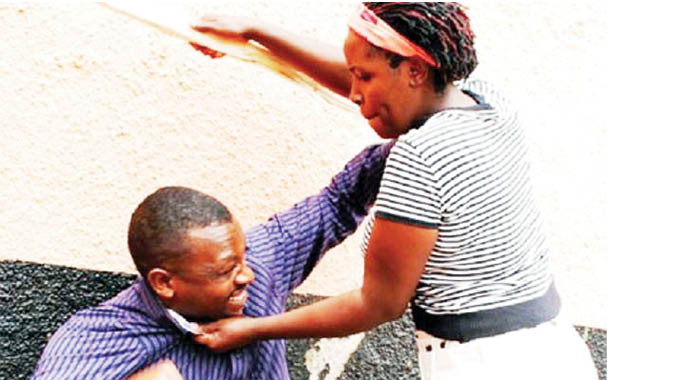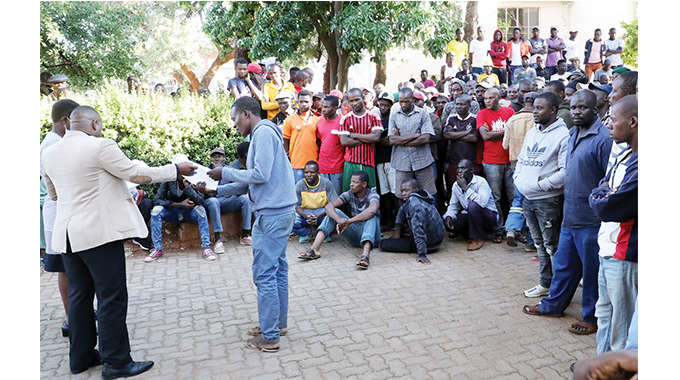Domestic violence cases rise under lockdown

Nqobile Tshili, Chronicle Reporter
DOMESTIC violence cases have increased by more than 100 percent during the ongoing Covid-19 induced national lockdown with men among the affected, the Zimbabwe Gender Commission (ZGC) report states.
Cases have shot up to about 1 200 in April, compared to an average of 500 usually reported in a month.
Institutions that fight against abuse have reported that psychological, emotional, verbal, physical, economical and other kinds of abuse have increased against both sexes as perpetrators spend every hour of the day locked down with their victims.
Police have, however, recorded a huge decrease in reported cases.
This has been attributed to the lockdown which requires everyone to stay at home, except for essential service providers and those seeking vital services like medical attention.
Violating the lockdown attracts a fine of up to $500 or in default 12 months in prison.
Government imposed a national lockdown on March 30 before extending it by a further 14 days for the second time last week.
In a report released this week titled: “A gender crisis within the Covid-19 pandemic one month after national lockdown,” the commission says the lockdown has had severe socio-economic impact on the nation.
ZGC’s report was compiled in consultations with Government, private sector, civic society, faith-based organisations and development agencies.
The report touches on how the lockdown has affected public service delivery, health matters, the economic sectors and families.
The commission has called on Government to address gendered socio-economic problems especially targeting the most vulnerable in society.
ZGC noted with concern the increase in gender-based violence (GBV) cases.
“Media and reports by institutions such as Musasa and Padare show an unprecedented increase in GBV namely domestic violence manifesting in physical, sexual, psychological and economic abuse among family members. Musasa, for example, reports that they have attended to more than 1 200 reports by end of
April, more than double the usual per month,” reads the report.
“Enkundleni (Padare), the Men’s Forum on Gender Equality, reports that during the same period, they had received more than 50 reports of domestic violence on men since the lockdown started, a sharp increase.”
The report states that while organisations dealing with GBV recorded increase in abuse cases, police registered reduced cases.
It says police acknowledged that the decrease in cases could be a result of few people being mobile.
“The situation for survivors, mainly women and girls, becomes desperate, as abusers are locked-up with their victims while limited mobility reduces the usual access to external assistance. Children are also trapped in this vicious cycle of violence as witnesses or victims. Women and girls are the worst affected in these circumstances. While schools generally provide safe shelter for children, these have been closed indefinitely further locking them within homes,” the report states.
ZGC said indefinite schools’ closure also presents new challenges for learners as it widens social gaps between the rich and poor when considering online learning.
It states that while home learning is being considered, its effectiveness is highly compromised as it is a new phenomenon in the country.
“Spending more time online also exposes children to cyber-bulling, sex-predators, pornographic material and all other online vices. Reports show that out of the school pupils, girls are in a more precarious situation as they risk falling pregnant and dropping out of school indefinitely,” reads the report.
ZGC also warns of increased food insecurity among vulnerable members of the society, some who lost their source of livelihoods as a result of measures to mitigate the spread of Covid-19.
It said the national lockdown has impacted heavily on the players in the informal sector while Government safety nets were not reaching intended beneficiaries on time due to cumbersome screening processes.
“While we acknowledge the scale of the pandemic and the strain it has put on all sectors, we call upon Government, civil society organisations, private sector, development agencies and other stakeholders to: recognise the gender dynamics in emergencies and ensure that respective response mechanisms are gender responsive and enhance respective social protection systems. There should be robust safety nets with a deliberate emphasis on giving preference to the vulnerable members of the society, which includes women, children, elderly and persons with disabilities, among other groups,” reads the report. – @nqotshili.









Comments